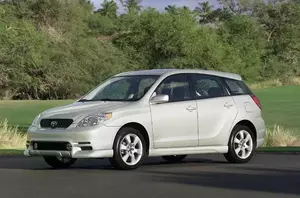
| Vehicle | Precise engine size | Difference from world average | Engine size to consumption ratio | Horsepower from 1 L | Engine size to 100 kg of weight |
|---|---|---|---|---|---|
| 2.4 |
2.36 L (2362 cc) |
0.7% bigger | - | 68 hp from 1 L | 182 cc to 100 kg |
| S 2.4 |
2.36 L (2362 cc) |
0.7% bigger | - | 68 hp from 1 L | 157 cc to 100 kg |
| Vehicle | 2.4 |
|---|---|
| Precise engine size | 2.36 L (2362 cc) |
| Difference from world average | 0.7 bigger |
| Engine size to consumption ratio | - |
| Horsepower from 1 L | 68 hp from 1 L |
| Engine size to 100 kg of weight | 182 cc to 100 kg |
| Vehicle | S 2.4 |
| Precise engine size | 2.36 L (2362 cc) |
| Difference from world average | 0.7 bigger |
| Engine size to consumption ratio | - |
| Horsepower from 1 L | 68 hp from 1 L |
| Engine size to 100 kg of weight | 157 cc to 100 kg |

| Vehicle | Precise engine size | Difference from world average | Engine size to consumption ratio | Horsepower from 1 L | Engine size to 100 kg of weight |
|---|---|---|---|---|---|
| 1.8i 16V |
1.79 L (1794 cc) |
23.5% smaller | - | 69 hp from 1 L | 150 cc to 100 kg |
| 1.8 i 16V |
1.8 L (1796 cc) |
23.4% smaller | - | 102 hp from 1 L | 138 cc to 100 kg |
| Vehicle | 1.8i 16V |
|---|---|
| Precise engine size | 1.79 L (1794 cc) |
| Difference from world average | 23.5 smaller |
| Engine size to consumption ratio | - |
| Horsepower from 1 L | 69 hp from 1 L |
| Engine size to 100 kg of weight | 150 cc to 100 kg |
| Vehicle | 1.8 i 16V |
| Precise engine size | 1.8 L (1796 cc) |
| Difference from world average | 23.4 smaller |
| Engine size to consumption ratio | - |
| Horsepower from 1 L | 102 hp from 1 L |
| Engine size to 100 kg of weight | 138 cc to 100 kg |